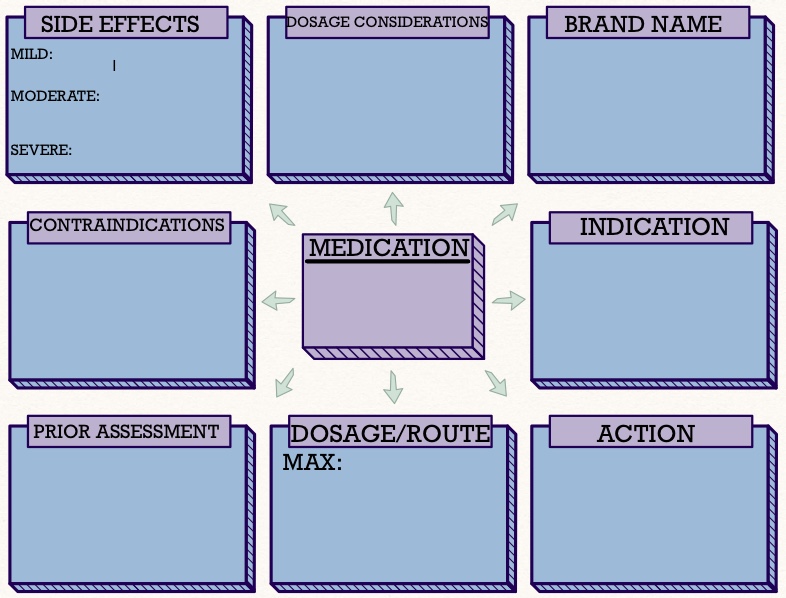Medication management is a critical component of healthcare, demanding precision and organized documentation to ensure patient safety and optimal treatment outcomes. Medication card templates have emerged as indispensable tools for healthcare professionals, simplifying the complex process of medication administration. These templates provide structured frameworks for documenting vital medication information, dosages, schedules, and patient-specific details. In this article, we will delve into the significance of a medication card template, its key features, and how it streamlines medication management while enhancing patient safety.
Understanding a Medication Card Template
A medication cards template is a pre-designed document or digital form that offers healthcare providers a systematic and organized way to document and manage medication-related information. These templates are specifically designed to streamline the recording of medication details, ensuring consistency and providing quick access to essential data for safe and effective medication administration. Healthcare settings such as hospitals, long-term care facilities, clinics, and home healthcare rely on medication card templates to maintain order and accuracy in medication management.
Key Features of a Medication Cards Template
- Comprehensive Medication Information: Medication cards templates typically include fields for medication names, dosages, routes of administration, frequencies, indications, and any special instructions.
- Structured Format: Templates are logically organized, offering sections for recording medication details in a standardized and consistent manner.
- Patient-Specific Information: Medication cards often incorporate sections for patient-specific details, such as allergies, weight, medical history, and any unique considerations or precautions.
- Visual Aids: Some templates integrate visual aids such as checkboxes, dropdown menus, or color-coded fields to improve clarity and user-friendliness.
- Medication Administration Records: Medication card templates can serve as medication administration records, allowing healthcare providers to document each dose administered, monitor adherence, and track medication changes.
Advantages of Using a Medication Card Template
- Enhanced Medication Safety: Medication card templates provide a standardized and organized platform to document medication information, reducing the risk of medication errors and promoting patient safety.
- Efficiency: These templates streamline the documentation process, saving valuable time for healthcare professionals and improving workflow efficiency.
- Consistency: Medication card templates encourage consistent documentation practices across healthcare settings, ensuring that important medication details are recorded uniformly.
- Communication: Standardized templates facilitate effective communication among healthcare team members, ensuring seamless transitions of care and coordinated patient management.
- Patient Education: Medication cards also serve as educational tools, enabling healthcare providers to share crucial medication information with patients and their caregivers.
- Legal Protection: Well-documented medication cards can serve as legal records, providing evidence of medication administration and protecting healthcare professionals and institutions in legal situations.
Types of Medication Card Templates
- Inpatient Medication Card Templates: Utilized in hospitals and acute care settings to document medications administered to inpatients.
- Outpatient Medication Card Templates: Designed for use in outpatient clinics and home healthcare, these templates help healthcare providers manage medications for patients receiving care outside of hospitals.
- Long-Term Care Medication Card Templates: Tailored for long-term care facilities, these templates document medications for residents receiving extended care.
- Home Medication Card Templates: Created for patients managing their medications at home, these templates offer a practical way to record and track personal medication regimens.
Conclusion
A medication card template is an invaluable tool that simplifies medication management and enhances patient safety in healthcare settings. These structured documents ensure that healthcare professionals have easy access to critical medication information, reducing the risk of errors and facilitating efficient medication administration. As medication management continues to be a core component of healthcare, the role of a medication card template in improving patient care and documentation cannot be overstated.









































